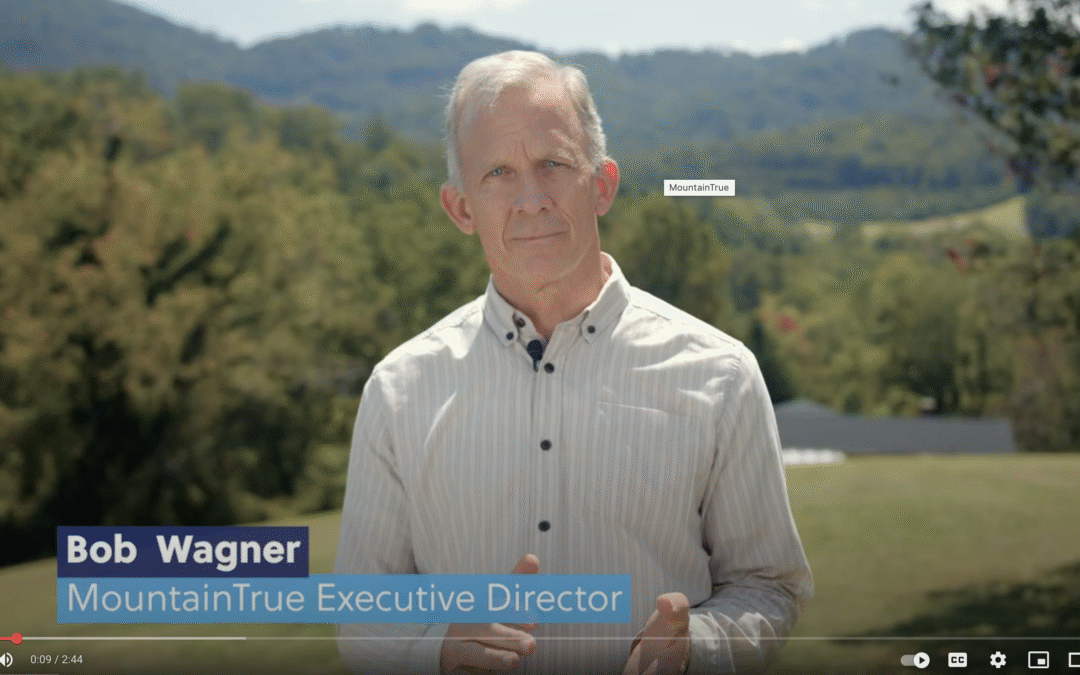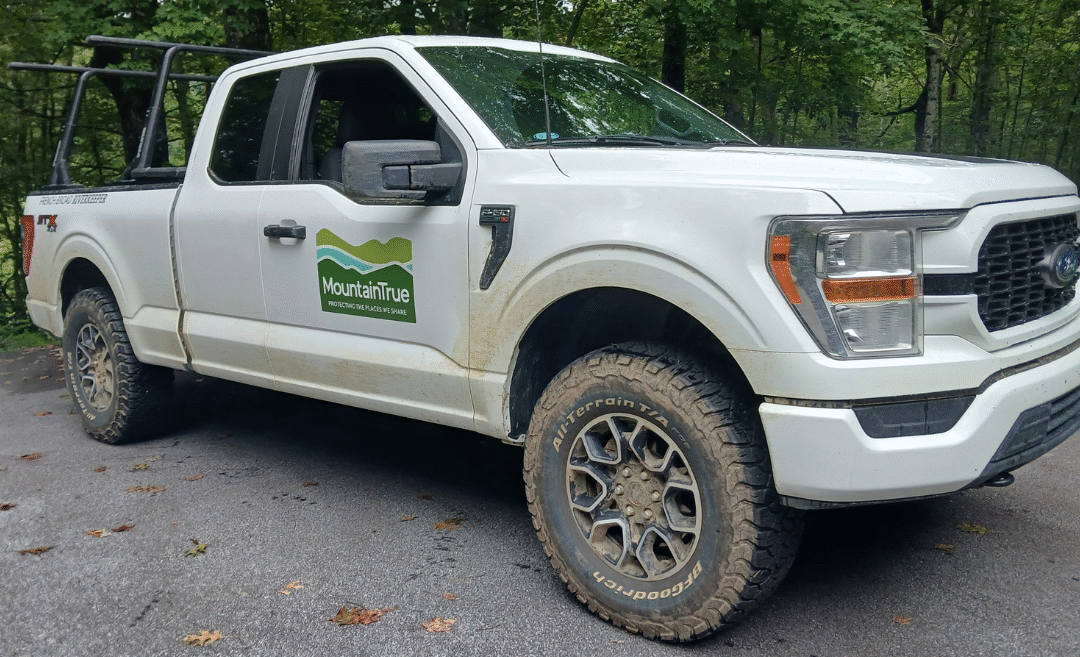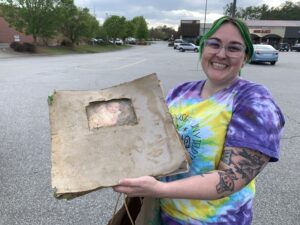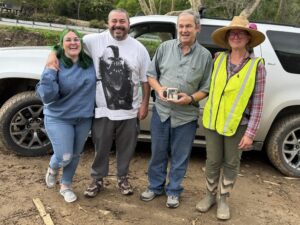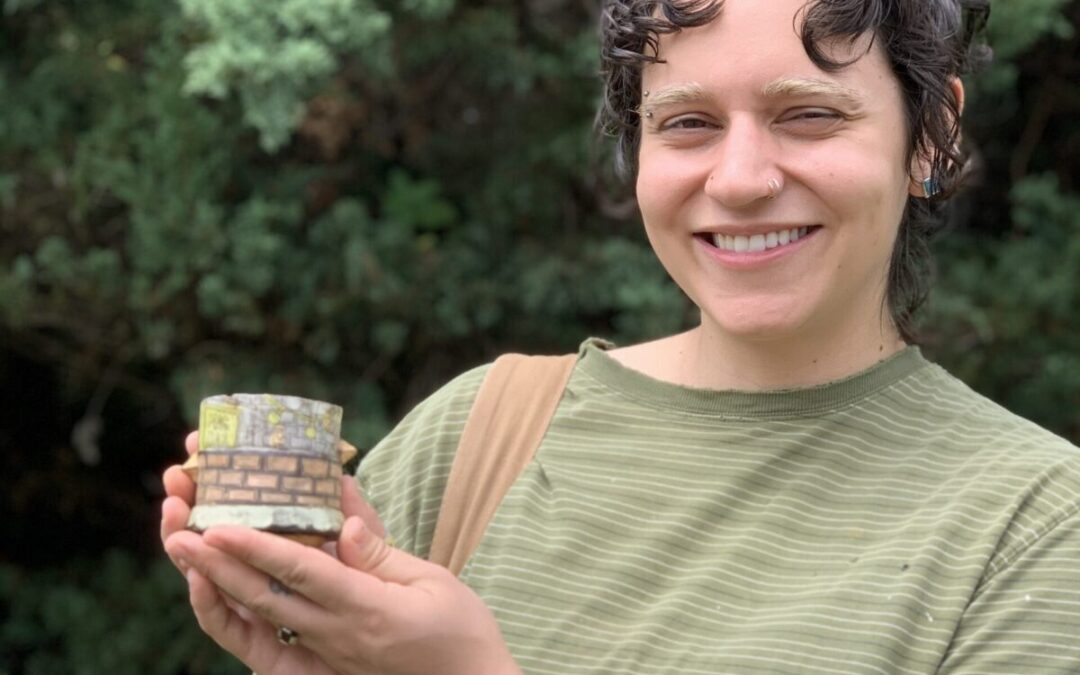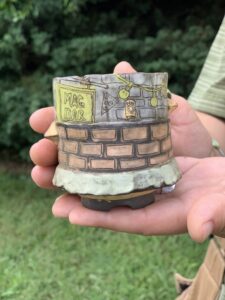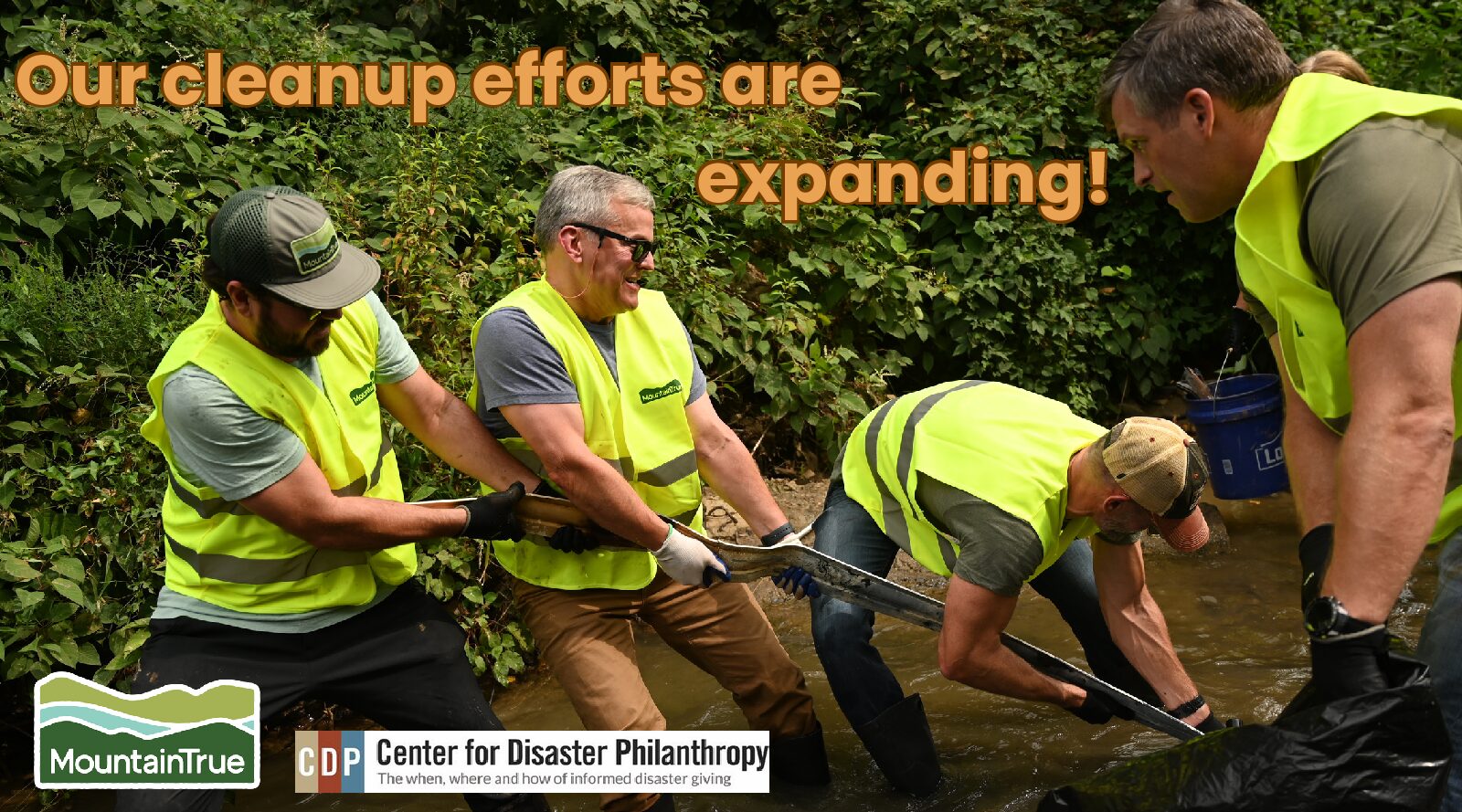
Big Update: MountainTrue’s River Debris Cleanup effort expands into Tennessee
Big Update: MountainTrue’s River Debris Cleanup effort expands into Tennessee
Dear MountainTrue Members & Friends,
MountainTrue’s significant River Debris Cleanup Program is expanding!
MountainTrue has received a $750,000 grant from the Center for Disaster Philanthropy’s (CDP) Truist Foundation Western North Carolina Recovery and Resiliency Fund (the Fund) to expand its regional debris cleanup and river restoration program — a historic recovery effort employing displaced workers, restoring damaged waterways, and strengthening communities across the southern Blue Ridge.
This new investment will supplement existing funding from the North Carolina Department of Environmental Quality (DEQ), enabling MountainTrue to work longer, in a larger area and with more crew members to clean up rivers, streams and streambanks after Hurricane Helene.
“Thanks to the generosity of the Truist Foundation and CDP, we’ll be able to expand the reach of our debris cleanup program — putting more people to work cleaning up more rivers and streams, including in the hardest-to-reach areas and into eastern Tennessee,” said Hartwell Carson, Clean Waters Director for MountainTrue.
With the funding, the nonprofit will add a crew with more technical expertise to navigate exceptionally hard-to-reach areas of whitewater and wield handheld power tools to help with particularly tricky debris piles. The support will allow MountainTrue to operate for 24 months and expand its footprint to the upper French Broad and Nolichucky watersheds in eastern Tennessee.
“Rivers don’t stop at state lines,” noted Jon Stamper, MountainTrue’s River Cleanup Program Manager. “Every bag of trash removed, every streambank stabilized, and every pollution source addressed is one more step toward ecological and economic recovery for our entire region,” he added.
Proven success
MountainTrue launched its River Debris Cleanup Program in July, standing up nine cleanup crews — consisting of 75 employees from 11 counties — to work across 25 WNC counties and the Eastern Band of Cherokee Indians’ Qualla Boundary.
Since Hurricane Helene ravaged our region, MountainTrue volunteers, Riverkeepers, and crew members have removed more than 4 million pounds of debris from the Broad, French Broad, Catawba, Green, North Toe, Rocky Broad, South Toe, Swannanoa and Watauga rivers and their tributaries — restoring vital habitat and protecting downstream communities. Crews focus on removing hand-pickable debris, avoiding trees and shrubs that should be left to maintain streambank integrity.
“At Truist, our purpose is to inspire and build better lives and communities. Supporting MountainTrue’s river debris cleanup program is a powerful way to put that purpose into action — creating local jobs, fostering sustainable recovery, and strengthening the economic foundation of Western North Carolina and Eastern Tennessee,” said Lynette Bell, Truist’s Head of Philanthropy and President of Truist Foundation. “We’re proud to stand alongside MountainTrue and the Center for Disaster Philanthropy, helping communities recover and prepare for a more resilient future.”
“We are so fortunate to have partners with unique technical expertise and deep community roots to undertake this significant initiative,” added Christine Laporte, program manager for the Truist Foundation Western NC Recovery and Resilience Fund at CDP. “Ecological recovery and clean waterways contribute to everyone’s well-being and are key drivers for our region’s economic recovery. We are grateful for MountainTrue’s committed action supporting the resilience of our rivers and our mountain communities.”
MountainTrue’s River Debris Cleanup Program is re-envisioning post-disaster environmental recovery efforts in a way that centers the people and ecology of the Southern Appalachians. With support from state and private partners, the organization is leading a long-term effort in 25 WNC counties and beyond to clean up storm debris, restore ecosystems, and rebuild river-based economies impacted by Hurricane Helene.
“Western North Carolina’s rivers are central to our identity, our recreation, and our economy,” said Gray Jernigan, deputy director and general counsel of MountainTrue. “We’re deeply grateful to CDP and Truist Foundation for recognizing that recovery isn’t just about rebuilding what was lost — it’s about restoring the natural systems that sustain us.”
Work funded by the Fund will begin immediately and continue through August 2027.
For more information, or to volunteer or apply for a cleanup job, visit cleanupwncrivers.com.
Seeking landowners
One key to the program’s success is the participation of private landowners along rivers and streams. MountainTrue is seeking landowners with river access throughout the region willing to allow debris removal teams access to waterways through their property. MountainTrue is conducting cleanups on streambanks at no cost with a signed landowner access agreement. Interested parties should go to cleanupwncrivers.com for more information.
About MountainTrue
MountainTrue champions resilient forests, clean waters, and healthy communities. We are committed to keeping our mountain region a beautiful place to live, work, and play. Our members protect forests, clean up rivers, plan vibrant and livable communities, and advocate for a sustainable future for all. MountainTrue is home to the Broad Riverkeeper, French Broad Riverkeeper, Green Riverkeeper, and Watauga Riverkeeper, and is active across Western North Carolina and parts of East Tennessee. Learn more at mountaintrue.org.
About the Center for Disaster Philanthropy (CDP)
The Center for Disaster Philanthropy mobilizes philanthropy to strengthen communities’ ability to withstand disasters and recover equitably when they occur. It provides expert advice and educational resources, supports diverse coalitions, and manages domestic and international disaster funds on behalf of corporations, foundations and individuals through targeted, holistic and localized grantmaking. Find out more at disasterphilanthropy.org and on LinkedIn.
About Truist Foundation
Truist Foundation is committed to Truist Financial Corporation’s (NYSE: TFC) purpose to inspire and build better lives and communities. The Foundation, an endowed private foundation established in 2020 whose operating budget is independent of Truist Financial Corporation, makes strategic investments in a wide variety of nonprofit organizations centered around two focus areas: building career pathways to economic mobility and strengthening small businesses to ensure all communities have an equal opportunity to thrive. Embodying these focus areas are the Foundation’s leading initiatives – the Inspire Awards and Where It Starts. Learn more at Truist.com/Foundation.






